Given the complex and changing nature of the pandemic, the Council of the Microbiology Society, supported by our Scientific Conferences Committee, recently made the decision to transition our planned Annual Conference in Birmingham in 2021 to an online event.
The event has been designed as a digital version of the Society’s flagship annual meeting whose symposia and activities are designed to achieve the same scientific and networking objectives.
Annual Conference Online 2021 takes place over five days and consists of symposia, workshops, forums, offered oral presentations and Prize Lectures from eminent microbiologists. It is being produced to offer ample opportunities for formal and informal online networking for both early career and established microbiologists.
Joining Instructions for Annual Conference Online 2021
The Scientific Conferences Panel has now finalised the sessions across the week. Confirmed sessions include:
This session is sponsored by Microbiology. The time may come when penicillin can be bought by anyone in the shops. Then there is the danger that the ignorant man may easily underdose himself and by exposing his microbes to non-lethal quantities of the drug make them resistant.” Since Alexander Fleming's prophetic warning in 1945, antimicrobial resistance has rapidly developed into a critically important global health threat. How bad is AMR, and what can we do about it? This session will start by looking the global scale of the AMR problem, then delve into the causes of AMR, and finally address some of the potential solutions. The session aims to bring together scientists with interests in AMR, across the fields of epidemiology, global public health, mechanisms of AMR development and spread, antimicrobial stewardship and discovery of novel therapeutics.
Jody Winter (Nottingham Trent University, UK); Meera Unnikrishnan (University of Warwick, UK); Jennifer Ritchie (University of Surrey, UK)
This session is sponsored by Microbiology. This forum will consider offered papers on all aspects of microbial (prokaryotic and eukaryotic) metabolism and physiology, including fundamental research on the biochemistry and structure of cells, cell growth and division, cell architecture and differentiation, synthesis and transport of macromolecules, ions and small molecules and the cell cycle; but also on the role of physiology in microbial engineering, signalling and communication, sensing and cellular responses, the molecular mechanisms behind these phenomena and their potential applications.
Gillian Fraser (University of Cambridge, UK); Martin Welch (University of Cambridge, UK); Delma Childers (University of Aberdeen), UK)
This session is sponsored by Journal of General Virology. Since emerging from the city of Wuhan, Hubei province in China towards the end of 2019, SARS-CoV-2 has caused more than 67 million confirmed cases, over 1.5 million recorded deaths, profound morbidity and severe socio-economic damage, disproportionately affecting those least well off in society. Huge research effort and investment has underpinned advances in the understanding of SARS-CoV-2, with tens of thousands of studies published or pre-printed in less than a year. This workshop will focus upon the molecular virology concerned with the virus life cycle, its interactions with the host cell, the innate and adaptive immune responses elicited, and how the virus strives to evade them. We will also cover abstracts relating to lab-based antiviral or other therapeutic work, as well as the development of culture systems emulating the in vivo scenario.
Steve Griffin (University of Leeds, UK); Elly Gaunt (University of Edinburgh, UK); Gerald Barry (University College Dublin, Ireland); Sam Wilson (University of Glasgow, UK)
Sarah Blackford will present an interactive workshop focused on career planning and guidance. The session will also offer an opportunity to hear about careers in microbiology from a variety of microbiologists working in different organisations in addition to academia. Those working in areas such as industry, clinical settings, and academia will present skills needed, career prospects and opportunities and specific information related to the role.
Rachel Asiedu (Microbiology Society, UK)
This session is sponsored by Microbiology. The time may come when penicillin can be bought by anyone in the shops. Then there is the danger that the ignorant man may easily underdose himself and by exposing his microbes to non-lethal quantities of the drug make them resistant.” Since Alexander Fleming's prophetic warning in 1945, antimicrobial resistance has rapidly developed into a critically important global health threat. How bad is AMR, and what can we do about it? This session will start by looking the global scale of the AMR problem, then delve into the causes of AMR, and finally address some of the potential solutions. The session aims to bring together scientists with interests in AMR, across the fields of epidemiology, global public health, mechanisms of AMR development and spread, antimicrobial stewardship and discovery of novel therapeutics.
Jody Winter (Nottingham Trent University, UK); Meera Unnikrishnan (University of Warwick, UK); Jennifer Ritchie (University of Surrey, UK)
Sarah Blackford will present an interactive workshop focused on career planning and guidance. The session will also offer an opportunity to hear about careers in microbiology from a variety of microbiologists working in different organisations in addition to academia. Those working in areas such as industry, clinical settings, and academia will present skills needed, career prospects and opportunities and specific information related to the role.
Rachel Asiedu (Microbiology Society, UK)
This session is sponsored by International Journal of Systematic and Evolutionary Microbiology. This forum includes offered papers on any area and any organism relevant to environmental, ecological, applied and industrial microbiology, including (non-human) host–microbe communities and interactions, marine and freshwater microbiology, soil and geomicrobiology, air-, cryo- and extremophile microbiology, climate change, biotechnology, bio-processing and bio-engineering, food microbiology, and other applied and industrial microbial processes, including microbe-mediated biodegradation and bioremediation.
Christine Edwards (Robert Gordon University, UK); Michael Cunliffe (Marine Biological Association, UK); Katherine Duncan (University of Strathclyde, UK); James McDonald (Bangor University, UK)
This session is sponsored by Journal of General Virology. Since emerging from the city of Wuhan, Hubei province in China towards the end of 2019, SARS-CoV-2 has caused more than 67 million confirmed cases, over 1.5 million recorded deaths, profound morbidity and severe socio-economic damage, disproportionately affecting those least well off in society. Huge research effort and investment has underpinned advances in the understanding of SARS-CoV-2, with tens of thousands of studies published or pre-printed in less than a year. This workshop will focus upon the molecular virology concerned with the virus life cycle, its interactions with the host cell, the innate and adaptive immune responses elicited, and how the virus strives to evade them. We will also cover abstracts relating to lab-based antiviral or other therapeutic work, as well as the development of culture systems emulating the in vivo scenario.
Steve Griffin (University of Leeds, UK); Elly Gaunt (University of Edinburgh, UK); Gerald Barry (University College Dublin, Ireland); Sam Wilson (University of Glasgow, UK)
Funding advisors will provide participants with greater clarity around fellowship strategies and application processes. Attendees will learn how to find the best fellowships for them and will learn from those who have recently been awarded fellowships. Those wishing to gain feedback and advice from experts will be able to do so during the application surgery round table discussions. Early and mid-career researchers wanting to explore fellowship application processes are encouraged to attend.
Daniela Barillà (University of York, UK)
This session is sponsored by International Journal of Systematic and Evolutionary Microbiology. Microbial life dominates the marine environment. Collectively their biomass greatly exceeds that of all other life forms in the oceans. Marine microbes have thrived in the world’s seas for billions of years and their diversity outweighs all non-microbial marine life combined. Microbes make the oceans work. They form and sustain global biogeochemical cycles, underpin food webs and maintain (or sometimes perturb) ecosystem health. Marine microbes are also a valuable source of biomolecules and enzymes, with great biotechnological potential. The session will bring together microbiologists from a range of fields with a collective interest in Marine Microbiology. The session will broadly cover three overarching themes; ‘marine microbial biogeochemistry’, ‘microbial symbiosis and interaction’, and ‘harnessing the potential of marine microbes’. As well as presentations from established research leaders in the field, the session will also showcase early career researchers.
Michael Cunliffe (Marine Biological Association, UK); Katherine Duncan (University of Strathclyde, UK); James McDonald (Bangor University, UK); Katherine Helliwell (Marine Biological Association, UK)
This session is sponsored by Journal of Medical Microbiology. It will cover identification and advances in drugs and vaccines targeting SARS-CoV-2, as well as the clinical care of individuals with COVID-19 and epidemiological studies of the virus. There has been remarkable progress made in a matter of months with the discovery of effective interventions to minimise the public health impact of the virus. Depending on the submitted abstracts, we aim to cover all aspects of applied drug and vaccine research, ranging from preclinical models and first-in-man studies through to the outcome of larger clinical trials. For abstracts relating to the clinical care and epidemiology of COVID-19, we plan to cover how treatment of infected individuals has evolved since the start of 2020 and how a combination of classical and molecular epidemiological approaches have provided a good understanding of transmission dynamics and helped inform public health intervention strategies.
Edward Wright (University of Sussex, UK); Tamyo Mbisa (Public Health England, UK); Stephen Winchester (Frimley Park Hospital NHS Foundation Trust, UK); Andrew Bosworth (Public Health England, UK)
Funding advisors will provide participants with greater clarity around fellowship strategies and application processes. Attendees will learn how to find the best fellowships for them and will learn from those who have recently been awarded fellowships. Those wishing to gain feedback and advice from experts will be able to do so during the application surgery round table discussions. Early and mid-career researchers wanting to explore fellowship application processes are encouraged to attend.
Daniela Barillà (University of York, UK)
This session is sponsored by Microbial Genomics. The Genetics and Genomics Forum will consider offered papers on all aspects of the genes and genomes of microbes (prokaryotes and eukaryotes) and their mobile elements, including their sequencing, transcription, translation, regulation, chromosome dynamics, gene transfer, population genetics and evolution, taxonomy and systematics, comparative genomics, metagenomics, bioinformatics, and synthetic biology.
Andrew Preston (University of Bath, UK); Sarah Maddocks (Cardiff Metropolitan University, UK)
This session is sponsored by International Journal of Systematic and Evolutionary Microbiology. Microbial life dominates the marine environment. Collectively their biomass greatly exceeds that of all other life forms in the oceans. Marine microbes have thrived in the world’s seas for billions of years and their diversity outweighs all non-microbial marine life combined. Microbes make the oceans work. They form and sustain global biogeochemical cycles, underpin food webs and maintain (or sometimes perturb) ecosystem health. Marine microbes are also a valuable source of biomolecules and enzymes, with great biotechnological potential. The session will bring together microbiologists from a range of fields with a collective interest in Marine Microbiology. The session will broadly cover three overarching themes; ‘marine microbial biogeochemistry’, ‘microbial symbiosis and interaction’, and ‘harnessing the potential of marine microbes’. As well as presentations from established research leaders in the field, the session will also showcase early career researchers.
Michael Cunliffe (Marine Biological Association, UK); Katherine Duncan (University of Strathclyde, UK); James McDonald (Bangor University, UK); Katherine Helliwell (Marine Biological Association, UK)
This session is sponsored by Journal of Medical Microbiology. It will cover identification and advances in drugs and vaccines targeting SARS-CoV-2, as well as the clinical care of individuals with COVID-19 and epidemiological studies of the virus. There has been remarkable progress made in a matter of months with the discovery of effective interventions to minimise the public health impact of the virus. Depending on the submitted abstracts, we aim to cover all aspects of applied drug and vaccine research, ranging from preclinical models and first-in-man studies through to the outcome of larger clinical trials. For abstracts relating to the clinical care and epidemiology of COVID-19, we plan to cover how treatment of infected individuals has evolved since the start of 2020 and how a combination of classical and molecular epidemiological approaches have provided a good understanding of transmission dynamics and helped inform public health intervention strategies.
Edward Wright (University of Sussex, UK); Tamyo Mbisa (Public Health England, UK); Stephen Winchester (Frimley Park Hospital NHS Foundation Trust, UK); Andrew Bosworth (Public Health England, UK)
This session is sponsored by Microbiology. Microbes are versatile metabolic factories that have the potential to produce a wide range of metabolites, including small bioactive compounds. Many microbes also have specific symbiotic interactions with multicellular organisms, including insects and other animals. There is now an increasing body of work showing that some microbial metabolites have important roles in controlling the development and/or behaviour of these multicellular organisms. In this symposium the role of metabolites produced by complex microbial communities, such as the gut microbiota, in animal health and development will be explored. This symposium will also discuss the role of specific signalling molecules that are produced by microbes and have been shown to have key roles in regulating the life-cycles of their animal hosts. Finally, in addition to making metabolites, the symposium will hear how microbes can transform one type of molecule into another with potentially serious implications on the health of the host.
Gunnar Schroeder (Queen's University Belfast, Ireland); Conor Feehily (Teagasc Moorepark, Ireland); David Clarke (University College Cork, Ireland)
This session is sponsored by Microbiology. This session will highlight advances made in microbial bio-engineering, synthetic microbiology and systems biotechnology that ultimately aims to disrupt the fossil-fuel based economy through the establishment of sustainable manufacturing of metabolites, materials, and medicines for a range of applications and sectors. Contributions are invited on topics such as bio-based and/or self-organizing building blocks and nanoparticles, bioproduction, biofabrication, smart and hybrid biomaterials, biosensors and bioremediation while submissions on novel tools for design and bio-engineering will also be most welcome.
Geertje van Keulen (Swansea University, UK); Alison Smith (University of Cambridge, UK); Nick Tucker (University of Strathclyde, UK)
This session is sponsored by Journal of General Virology. RNA viruses represent some of the most prevalent and serious threats to human public health. Even now, despite many years of searching, HCV and HIV continue to frustrate vaccine development, yet are held in check by antiviral regimens. By contrast, diseases like yellow fever persist despite a ready-made, efficacious vaccine and we lack interventions for many of the existing and emerging RNA viruses across the planet. Moreover, RNA viruses exert exquisite influence over the host cell, hijacking multiple pathways and eluding both innate and adaptive immunity. We invite abstracts focused upon any aspects of RNA virus biology (+ve, -ve strand, dsRNA viruses, retro/Lentiviruses, including animal/plant viruses), ranging from molecular studies to human trials. Studies on pathogenesis and transmission will also form an integral of the part of the session, along with antivirals, vaccine development and epidemiology.
Rachael Tarlinton (University of Nottingham, UK); Ed Hutchinson (University of Glasgow, UK); Dalan Bailey (The Pirbright Institute, UK); Steve Griffin (University of Leeds, UK)
This session is sponsored by Microbiology. Microbes are versatile metabolic factories that have the potential to produce a wide range of metabolites, including small bioactive compounds. Many microbes also have specific symbiotic interactions with multicellular organisms, including insects and other animals. There is now an increasing body of work showing that some microbial metabolites have important roles in controlling the development and/or behaviour of these multicellular organisms. In this symposium the role of metabolites produced by complex microbial communities, such as the gut microbiota, in animal health and development will be explored. This symposium will also discuss the role of specific signalling molecules that are produced by microbes and have been shown to have key roles in regulating the life-cycles of their animal hosts. Finally, in addition to making metabolites, the symposium will hear how microbes can transform one type of molecule into another with potentially serious implications on the health of the host.
Gunnar Schroeder (Queen's University Belfast, Ireland); Conor Feehily (Teagasc Moorepark, Ireland); David Clarke (University College Cork, Ireland)
This session is sponsored by International Journal of Systematic and Evolutionary Microbiology. Under the umbrella of Protistology-UK, will complement the new UK initiative “Darwin Tree of Life Project”, which aims to sequence and annotate the genomes of 66,000 UK species of animals, plants protists and fungi. This initiative is part of the “Earth BioGenome Project”, which targets to sequence all 1.5 million known eukaryotic species on earth. Protists and fungi are the main contributors to this list and we will explore their vast diversity, not only within the UK, but globally. Speakers will discuss which branches of the eukaryotic tree of life have been over/underestimated based on recent metagenomics data and which regions have been undersampled to explore and discover potentially new branches of the eukaryotic tree. This session is dedicated to Professor Thomas Cavalier-Smith FRS FRSC who passed away on 19 March 2021.
Anastasios Tsaousis (University of Kent, UK); Sonja Rueckert (Edinburgh Napier University, UK)
This session is sponsored by Microbiology. This session will highlight advances made in microbial bio-engineering, synthetic microbiology and systems biotechnology that ultimately aims to disrupt the fossil-fuel based economy through the establishment of sustainable manufacturing of metabolites, materials, and medicines for a range of applications and sectors. Contributions are invited on topics such as bio-based and/or self-organizing building blocks and nanoparticles, bioproduction, biofabrication, smart and hybrid biomaterials, biosensors and bioremediation while submissions on novel tools for design and bio-engineering will also be most welcome.
Geertje van Keulen (Swansea University, UK); Alison Smith (University of Cambridge, UK); Nick Tucker (University of Strathclyde, UK)
This session is sponsored by Journal of General Virology. RNA viruses represent some of the most prevalent and serious threats to human public health. Even now, despite many years of searching, HCV and HIV continue to frustrate vaccine development, yet are held in check by antiviral regimens. By contrast, diseases like yellow fever persist despite a ready-made, efficacious vaccine and we lack interventions for many of the existing and emerging RNA viruses across the planet. Moreover, RNA viruses exert exquisite influence over the host cell, hijacking multiple pathways and eluding both innate and adaptive immunity. We invite abstracts focused upon any aspects of RNA virus biology (+ve, -ve strand, dsRNA viruses, retro/Lentiviruses, including animal/plant viruses), ranging from molecular studies to human trials. Studies on pathogenesis and transmission will also form an integral of the part of the session, along with antivirals, vaccine development and epidemiology.
Rachael Tarlinton (University of Nottingham, UK); Ed Hutchinson (University of Glasgow, UK); Dalan Bailey (The Pirbright Institute, UK); Steve Griffin (University of Leeds, UK)
This session will provide participants with useful information about the key areas of business to consider when becoming a scientific entrepreneur. Participants will be given a checklist of considerations from patents and funding to marketing strategies and creating a team. Microbiology entrepreneurs will provide insight into how they transformed their scientific research into business ideas.
Diane Wilkinson (Legume Technology, UK); Tadhg Ó'Cróinín (University College Dublin, Ireland); Rocky Cranenburgh (Bitrobius Genetics Ltd, UK)
This session is sponsored by Journal of Medical Microbiology. A broad session covering the spectrum of public health microbiology applications. Invited speakers cover the practise and application of public health microbiology at the national level (Gayatri Amirthalingam, PHE Colindale, UK) and internationally (Iruka Okeke Nigeria Centre for Disease Control and Direk Limmathurotsakul, Thailand). We cover public health microbiology at the front line including an update on the contentious issue of Lyme disease incidence and epidemiology (Anne Cruikshank, RCGP Clinical Champion for Lyme Disease and Sandra Pearson, Lyme Disease Action UK); and how genomics can be incorporated fully into national level surveillance and epidemiology of infectious disease as demonstrated by Michael Weigand, CDC Atlanta, USA. We will include offered papers from across the breadth of public health microbiology to deliberately create a broad interest session.
Andrew Preston (University of Bath, UK); Norman Fry (Public Health England - National Infection Service, UK)
On 24 December 2020, the UK and the EU reached a deal, including agreeing the terms for UK association to Horizon Europe – the successor program of Horizon 2020 and one of the most ambitious multilateral funding schemes in the world. What are the details of the agreement and the implications for microbiology research and innovation? How can universities mitigate the impact of any new barriers? Does it bring about an end to uncertainty and should the microbiology community get back involved in EU collaborative research? Our panel of speakers will consider where we are and where we might be heading. There will also be the opportunity for questions from our on-line audience.
Eva Scholtus (Microbiology Society, UK)
This session is sponsored by Journal of General Virology. We invite abstracts on any aspect of DNA viruses. Depending on the abstracts received, the workshop will be structured around a typical life-cycle of DNA viruses and will cover virus entry and uncoating, genome replication, particle structure, assembly and egress. Pathogenesis will be covered to demonstrate the diversity of diseases that these viruses cause, together with the host response to infection, and vaccine or antiviral-based treatments or therapies that can be used to combat infection. Both human and animal pathogens will be covered, including the opportunity for clinicians to present studies on ongoing outbreaks or epidemiological studies.
Jo Parish (University of Birmingham, UK); Matthew Reeves (University College London, UK); Claire Shannon-Lowe (University of Birmingham, UK); Blair Strang (St George's, University of London, UK)
This session is sponsored by Microbial Genomics. Bacteriophages have come to the forefront in recent years, in particular due to their exciting applications in treatment of resilient bacterial infections. This session will bring together various topics on phage biology ranging from fascinating fundamental biology to phage genetic engineering and novel therapeutic applications.
Meera Unnikrishnan (University of Warwick, UK); Robert Fagan (University of Sheffield, UK)
This session is sponsored by Journal of Medical Microbiology. A broad session covering the spectrum of public health microbiology applications. Invited speakers cover the practise and application of public health microbiology at the national level (Gayatri Amirthalingam, PHE Colindale, UK) and internationally (Iruka Okeke Nigeria Centre for Disease Control and Direk Limmathurotsakul, Thailand). We cover public health microbiology at the front line including an update on the contentious issue of Lyme disease incidence and epidemiology (Anne Cruikshank, RCGP Clinical Champion for Lyme Disease and Sandra Pearson, Lyme Disease Action UK); and how genomics can be incorporated fully into national level surveillance and epidemiology of infectious disease as demonstrated by Michael Weigand, CDC Atlanta, USA. We will include offered papers from across the breadth of public health microbiology to deliberately create a broad interest session.
Andrew Preston (University of Bath, UK); Norman Fry (Public Health England - National Infection Service, UK)
This session is sponsored by Journal of General Virology. We invite abstracts on any aspect of DNA viruses. Depending on the abstracts received, the workshop will be structured around a typical life-cycle of DNA viruses and will cover virus entry and uncoating, genome replication, particle structure, assembly and egress. Pathogenesis will be covered to demonstrate the diversity of diseases that these viruses cause, together with the host response to infection, and vaccine or antiviral-based treatments or therapies that can be used to combat infection. Both human and animal pathogens will be covered, including the opportunity for clinicians to present studies on ongoing outbreaks or epidemiological studies.
Jo Parish (University of Birmingham, UK); Matthew Reeves (University College London, UK); Claire Shannon-Lowe (University of Birmingham, UK); Blair Strang (St George's, University of London, UK)
This session is sponsored by Journal of Medical Microbiology. Offered papers will be presented in areas related to infections caused by prokaryote and eukaryote pathogens of human, veterinary or botanical significance including epidemiology, diagnosis, identification, typing, pathogenesis, treatment, antimicrobial agents and resistance, prevention, virulence factors, host responses and immunity, transmission, and models of infection at the cell, tissue or whole organism level.
Andrew Edwards (Imperial College, UK); Duncan Wilson (University of Exeter, UK); Helen Brown (University of Cardiff, UK)
This session is sponsored by Access Microbiology. The symposium will deliver sessions dedicated to pertinent areas of interest for those involved in teaching in higher education. Delegates will have the opportunity to learn from the experience of those involved in AMR outreach and engagement activities; HEA fellowships will be explored in its wider breadth; and those involved in using and creating digital platforms for teaching microbiology will present their practices.
Tadhg Ó'Cróinín (University College Dublin, Ireland); Nicola Crewe (University of Lincoln, UK); James Edwards (University of Plymouth, UK); Alison Graham (Hull York Medical School, UK); Christopher Randall (University of Leeds, UK); Mel Lacey (Sheffield Hallam University, UK)
e-Bug: Educating Children and Young People About Microbes, Infection Prevention and Antibiotics.
Swab and send
Public Engagement with AMR: evaluation of effectiveness and impact
Evaluation of a novel antibiotic teaching resource
This session is sponsored by Microbial Genomics. Bacteria host a diverse range of mobile genetic elements (MGEs) — including plasmids, transposons, integrative-conjugative elements, and prophages — that make a significant impact on the lives of the bacteria they inhabit, and beyond. As vehicles of horizontal gene transfer, MGEs facilitate rapid adaptation, allowing microbes to colonize new environments, exemplified by the alarming spread of resistance genes between lineages. Changes in MGE copy number can alter gene dosage, enhancing evolution through increased mutational supply, while changes to genome architecture or gene expression caused by MGE activity can result in large-scale phenotypic change. MGEs interact with one another in multifarious ways both competitive and collaborative, affecting the success of the microbes that host them. Meanwhile, the functions encoded by MGEs represent a powerful molecular toolkit which has been repurposed by microbes for various services including gene regulation and antagonising neighbours. In this session we will consider the far-reaching contribution that these ubiquitous, diverse, and versatile elements make to microbial life.
Robert Fagan (University of Sheffield, UK); James Hall (University of Liverpool, UK)
This session is sponsored by Journal of General Virology. In recent years, enormous technological advances have allowed researchers to unpick the structural and dynamic details of viruses and their interactions with unprecedented detail. These include huge strides in cryo-EM and cryo-electron tomography (cryo-ET) capabilities that deliver structural information at the atomic level. Super-resolution microscopy and single molecule techniques have provided an unparalleled view of macromolecular dynamics, including virus-host interactions and virus replication, transcription and translation. In addition, techniques such as correlative light-electron microscopy (CLEM) has bridged light microscopy and high-resolution EM in order to simultaneously correlate functional information with ultrastructural detail. Together, these exciting developments have shed light on viral processes such as fusion and entry, assembly, maturation, gene expression and replication. They have also played a central role in the development of antiviral therapeutics, including vaccines, by providing unparalleled information about neutralising antibody interactions with viral glycoproteins. Because ‘structure determines function’, our ability to visualise these processes has revolutionised our understanding of virology and associated diseases. This symposium will bring together the fascinating research that has allowed us to visualise viruses and fundamental virus biology.
Goedele Maertens (Imperial College London, UK); Charlotte Uetrecht (Heinrich Pette Institute, Leibniz Institute for Experimental Virology, Germany); David Hughes (University of St Andrews, UK); Rachel Edgar (Imperial College London, UK)
This session is sponsored by Journal of Medical Microbiology. Offered papers will be presented in areas related to infections caused by prokaryote and eukaryote pathogens of human, veterinary or botanical significance including epidemiology, diagnosis, identification, typing, pathogenesis, treatment, antimicrobial agents and resistance, prevention, virulence factors, host responses and immunity, transmission, and models of infection at the cell, tissue or whole organism level.
Andrew Edwards (Imperial College, UK); Duncan Wilson (University of Exeter, UK); Helen Brown (University of Cardiff, UK)
This session is sponsored by Access Microbiology. The symposium will deliver sessions dedicated to pertinent areas of interest for those involved in teaching in higher education. Delegates will have the opportunity to learn from the experience of those involved in AMR outreach and engagement activities; HEA fellowships will be explored in its wider breadth; and those involved in using and creating digital platforms for teaching microbiology will present their practices.
Tadhg Ó'Cróinín (University College Dublin, Ireland); Nicola Crewe (University of Lincoln, UK); James Edwards (University of Plymouth, UK); Alison Graham (Hull York Medical School, UK); Christopher Randall (University of Leeds, UK); Mel Lacey (Sheffield Hallam University, UK)
Offered paper: Virtual Reality Games to Engage Young People in Antibiotic Stewardship and Inspire the Next-Generation to Tackle AMR
Digital strategies to mitigate student anxiety when participating in practical microbiology classes: A demonstration of ThingLink, Microsoft Forms and OneNote Class Notebook
Tackling accessibility barriers to develop an inclusive virtual classroom
Infecting the World with Games that Make You Think
Offered paper: The Integration of Immersive Virtual Learning Technologies for the Teaching of Challenging Concepts in Molecular and Cellular Biology
Offered paper: "RISE"ing to the occasion on a shoestring. Technology-enhanced Microbiology practical teaching
This session is sponsored by Microbial Genomics. Bacteria host a diverse range of mobile genetic elements (MGEs) — including plasmids, transposons, integrative-conjugative elements, and prophages — that make a significant impact on the lives of the bacteria they inhabit, and beyond. As vehicles of horizontal gene transfer, MGEs facilitate rapid adaptation, allowing microbes to colonize new environments, exemplified by the alarming spread of resistance genes between lineages. Changes in MGE copy number can alter gene dosage, enhancing evolution through increased mutational supply, while changes to genome architecture or gene expression caused by MGE activity can result in large-scale phenotypic change. MGEs interact with one another in multifarious ways both competitive and collaborative, affecting the success of the microbes that host them. Meanwhile, the functions encoded by MGEs represent a powerful molecular toolkit which has been repurposed by microbes for various services including gene regulation and antagonising neighbours. In this session we will consider the far-reaching contribution that these ubiquitous, diverse, and versatile elements make to microbial life.
Robert Fagan (University of Sheffield, UK); James Hall (University of Liverpool, UK)
This session is sponsored by Journal of General Virology. In recent years, enormous technological advances have allowed researchers to unpick the structural and dynamic details of viruses and their interactions with unprecedented detail. These include huge strides in cryo-EM and cryo-electron tomography (cryo-ET) capabilities that deliver structural information at the atomic level. Super-resolution microscopy and single molecule techniques have provided an unparalleled view of macromolecular dynamics, including virus-host interactions and virus replication, transcription and translation. In addition, techniques such as correlative light-electron microscopy (CLEM) has bridged light microscopy and high-resolution EM in order to simultaneously correlate functional information with ultrastructural detail. Together, these exciting developments have shed light on viral processes such as fusion and entry, assembly, maturation, gene expression and replication. They have also played a central role in the development of antiviral therapeutics, including vaccines, by providing unparalleled information about neutralising antibody interactions with viral glycoproteins. Because ‘structure determines function’, our ability to visualise these processes has revolutionised our understanding of virology and associated diseases. This symposium will bring together the fascinating research that has allowed us to visualise viruses and fundamental virus biology.
Goedele Maertens (Imperial College London, UK); Charlotte Uetrecht (Heinrich Pette Institute, Leibniz Institute for Experimental Virology, Germany); David Hughes (University of St Andrews, UK); Rachel Edgar (Imperial College London, UK)
Optimized sample processing and dPCR-based workflow for wastewater-monitoring of SARS-CoV-2
Rapid, Accessible Research and Diagnostic Tools Enabled by LAMP and Isothermal Amplification
Amplicon vs Shotgun Metagenomics: What’s the right sequencing approach to meet your research goals?
Introduction to the National Collection of Type Cultures genomic datasets: a Staphylococcus aureus case study
e-Bug: Educating Children and Young People About Microbes, Infection Prevention and Antibiotics.
Swab and send
Public Engagement with AMR: evaluation of effectiveness and impact
Evaluation of a novel antibiotic teaching resource
Offered paper: Virtual Reality Games to Engage Young People in Antibiotic Stewardship and Inspire the Next-Generation to Tackle AMR
Digital strategies to mitigate student anxiety when participating in practical microbiology classes: A demonstration of ThingLink, Microsoft Forms and OneNote Class Notebook
Tackling accessibility barriers to develop an inclusive virtual classroom
Infecting the World with Games that Make You Think
Offered paper: The Integration of Immersive Virtual Learning Technologies for the Teaching of Challenging Concepts in Molecular and Cellular Biology
Offered paper: "RISE"ing to the occasion on a shoestring. Technology-enhanced Microbiology practical teaching
Annual Conference regularly attracts over 1,600 attendees for the UK’s largest annual gathering of microbiologists. The event is designed to cover the breadth of microbiology and its online oral abstracts and electronic posters are both key to delivering a comprehensive scientific programme.
Notifications of acceptance have now been sent out. Please contact [email protected] if you submitted an abstract but have not received a notification letter.
Anyone who is awarded an oral presentation can attend free-of-charge on the day in which they are speaking; all accepted abstracts will also be included in an edition of Access Microbiology.
If your abstract is accepted and you are no longer able to attend Conference please let us know immediately by emailing [email protected].
The posters at Annual Conference provide an excellent platform to showcase emerging scientific research related to the talks programmed during the day. The poster abstract book can be downloaded below and searched using the Find functionality (CTRL + F) and key words.
A directory of e-posters will be included on the main event platform. E-posters will include the presenting author’s name, poster number, title, full abstract body and will include a copy of the poster as a PDF.
The directory of e-posters will be open for all attendees to view from 19 April 2021 (one week prior to the conference start date). This is designed to allow delegates and poster prize judges an opportunity to look through the posters and to familiarise themselves with the platform in advance of the meeting.
All posters will remain viewable throughout the event and for one month after Conference ends.
Please email [email protected] if you would like your poster to be removed immediately after Conference.
You are requested to produce a single-sided poster in accordance with the following guidelines and technical specifications:
Once you have finalised your poster PDF, we ask that you submit it by emailing it to [email protected] by Monday 5 April 2021, if at all possible. Please do let us know if you are unable to submit your poster by this deadline and we will work with you to try and include it before the platform opens on 19 April 2021.
If you have already submitted your poster, you should have received a reply to confirm that it has been received.
If the file is too large to be sent via email, it is recommended that you use ‘WeTransfer’ or a similar file sharing service.
All e-poster presenters have been assigned to a live poster presentation session. The poster presentations are grouped by session title.
All posters presentations will take place between 18:30 and 19:30 BST except for AMR poster session part 2 which will take place between 19:30 and 20:30 BST.
Please note, RNA viruses poster sessions will take place on two days, please check which day your poster number falls within.
Please see below for details on which day your sessions posters will be held.
Monday 26 April
Monday 26 April, 19:30 and 20:30 BST
Tuesday 27 April
Wednesday 28 April
Thursday 29 April
Live poster presentations will be run on Zoom. Each poster presenter will be assigned to a breakout room where you can present your poster via the ‘share screen’ functionality.
Delegates can join poster presentations using their video and audio to interact.
You will receive further instructions on how to access your poster room closer to the meeting.
Please produce a slideshow presentation in accordance with the following guidelines and technical specifications:
Further instructions and details of your oral presentation have now been sent out. Please contact [email protected] if you have accepted an oral presentation but have not received the information about it.
Each year, the Young Microbiologist of the Year Competition recognises and rewards excellence in science communication by a Microbiology Society member who is a postgraduate student or postdoctoral researcher, having gained their PhD in the last two years.
During Annual Conference Online, judges will view posters and offered orals presented by early career members who have entered the competition via abstract submission. Finalists will be notified in early summer if they have been selected and will be invited to give a 10-minute oral presentation (plus five minutes for questions) at the final at the Society’s Annual General Meeting in Autumn 2021.
All poster presenters will be entered into the People's Choice Poster Prize, which will identify the three most popular posters presented during the Annual Conference. All delegates will be asked to choose their favourite posters that they visited by voting on the digital event platform in the 'Posters' tab. Detailed instructions will be provided closer to the event together with the joining instructions.
All poster presentations will be considered for the Microbiology Society Journals’ ‘Most Promising Science’ Prize. Four prizes will be awarded to posters that present particularly compelling or novel research within the subject areas of the following Society journals: Microbiology, Journal of General Virology, Journal of Medical Microbiology and Microbial Genomics. Prizes will be judged by Editors from the Society’s journals with winners receiving a cash prize and a certificate.
The Infection Science Award is an exchange scheme that facilitates the most promising trainee and early career presenters from the Federation of Infection Societies (FIS) to present at the Microbiology Society Annual Conference Infection Forum, in an effort to improve the exchange of ideas and the career development of early career researchers and trainee scientists and doctors.
To enter the competition, submit your abstract to the Infection Forum session and provide an additional statement about how the award will benefit your professional development.
Society Conference Grants are available to support eligible members wishing to present at the Annual Conference. Support is also available for members requiring support for caring costs associated with conference attendance. Full information is available on the Society Conference Grant page.
Members not eligible for a Society Conference Grant can apply to the Travel Grant scheme (deadline: 1 March 2021). This supports attendance at events taking place in the period 1 April–30 June, and also includes the full duration of the Annual Conference Online 2021.
Applications for the Society Conference Grant and Travel Grant, to support registration for the Annual Conference Online 2021, are now closed.
Please contact [email protected] if you have any questions.
The ECM Forum Co-chairing Scheme provides ECM Forum members with the opportunity to be involved in the chairing of scientific sessions at the Annual Conference. The Co-Chairs will receive a fantastic professional development opportunity to learn about being a session chair from more experienced colleagues. Please note that there is no monetary value associated with co-chairing and the co-Chair will not take the place of a session Chair.
ECM Forum members are eligible to apply. Applications should be made when submitting an abstract via Oxford Abstract. All applications will be reviewed by the Society's Divisions and successful Co-Chairs will be introduced to the relevant session Chair in March.
Co-Chairs will receive a letter of thanks from the ECM Forum Executive Committee confirming that they participated in the Co-chairing Scheme, and will be recognised in the conference programme.
For questions about the ECM Forum Co-chairing Scheme, please contact [email protected] and to join the ECM Forum please visit this page.
Wednesday 28 April 19:30–20:30
Join Dr Elly Gaunt and Dr Andrew Bosworth for an Early Career Microbiologists (ECM) Forum session all about our early career researchers and the challenges they've faced over the past year. Joining us will be Dr Jessica Blair, PI and Dr Jack Ferguson, Post-doctoral researcher, both from the University of Birmingham, Ainsley Beaton, who recently completed her PhD at the University of Strathclyde after working in the Lighthouse Lab Network over the past year, and Dr Katie Wheat, Head of Engagement and Policy at Vitae, an organisation placing the support and welfare of researchers at its heart. Elly and Andrew will pose questions to the panel from early career scientists in the Society, to discuss the experiences many of us share about the impact of COVID-19 on our research and studies.
Question submissions are now closed.
Monday 26 April 10:00–17:00
Sarah Blackford, an internationally recognised career consultant with over 25 years’ experience working with students, researchers and academics in the field of Higher Education career development, will present an interactive workshop focused on career planning and guidance.
The session will also offer an opportunity to hear about careers in microbiology from a variety of microbiologists working in different fields. Those working in areas such as industry, clinical settings, and academia will present skills needed, career prospects and opportunities, as well as their own career journeys. Early- and mid-career researchers thinking about their next career move are encouraged to attend.
Tuesday 27 April, 10:00–17:00
Funding advisors will provide participants with greater clarity around fellowship strategies and application processes. Attendees will learn how to find the best fellowships for them and will learn from those who have recently been awarded fellowships. Early and mid-career researchers wanting to explore fellowship application processes are encouraged to attend.
Thursday 29 April, 10:00–13:00
This session will provide participants with useful information about the key areas of business to consider when becoming a scientific entrepreneur. Participants will be given a checklist of considerations from patents and funding to marketing strategies and creating a team. Scientific entrepreneurs will provide insight into how they transformed their scientific research into business ideas. This session will be useful for those considering a business idea.
Friday 30 April, 10:00–17:00
This symposium will deliver sessions dedicated to pertinent areas of interest for those involved in teaching in higher education.
Delegates will have the opportunity to learn from the experience of those involved in AMR outreach and engagement activities; HEA fellowships will be explored in its wider breadth; and those involved in using and creating digital platforms for teaching microbiology will present their practices. Those involved in teaching, wanting to pursue a teaching focused role or keep up to date with new techniques and standards, including post-doctoral demonstrators, are encouraged to attend.
The Annual Conference has been accredited by the Royal Society of Biology (90 CPD credits), the Royal College of Pathology (30 CPD credits) and the Institute of Biomedical Science (category: Professional Activity).
Certificates of attendance and further information can be requested by email at [email protected].
Annual Conference Online 2021 will be accessible remotely and will use a virtual event platform called ‘Conference Compass’. This can be accessed through your web browser.
For the most stable and consistent experience, it is highly recommended that you use Google Chrome. Microsoft Edge is also compatible - depending on your browser’s security settings. Please note, the platform is not compatible with Internet Explorer or Safari.
Joining Instructions for Annual Conference Online 2021Annual Conference Online 2021 will include an event app.
This will be available as a free download for all registered delegates. It has primarily been designed to help you make personal connections with other attendees (subject to your permissions).
The software also offers live event notifications, personalised schedules across the whole of Annual Conference week and options to search all abstracts.
Registration is now open.
Members get heavily subsidised registration fees for Annual Conference and other Society events – both online and in-person. Join now to enjoy these discounts and many other opportunities that are designed for microbiologists at all stages of their career.
Please see the programme for details of individual session dates and times.
| Ticket |
|
2 days | 3 days | 4 days |
|
| Non-member | £30 | £60 | £90 | £120 | £135 |
| Affiliate member | £15 | £30 | £45 | £60 | £67 |
| Full member | £10 | £20 | £30 | £40 | £45 |
| Concessionary member | £5 | £10 | £15 | £20 | £22 |
| Student member | £5 | £10 | £15 | £20 | £22 |
The Microbiology Society's Annual Conference is the UK's largest annual gathering of microbiologists and prices are heavily subsidised. To ensure the meeting remains of value for this broad microbiology community, small charges apply to reflect some of the incurred costs associated to delivering online meetings
Upon registration, you should receive an automated confirmation email. Please contact [email protected] if after 24 hours this has not been received.
All registration fees must be paid in full before the start of the event. Any outstanding registration fees must be paid before any joining instructions containing information on how to access the event are sent out.
Please inform the conferences team if you can no longer attend the event after registering by contacting [email protected]. Refunds are not provided; however, substitutions of attendees can be made at any time.
If you’re finalising your plans for this year’s Annual Conference Online 2021, there’s plenty more ways to stay engaged online outside of the main scientific programme. As ever, Conference has its own social programme with dedicated networking and well-being slots throughout the week.

Digest the first morning's talks and take an important pause to help you get the most from this year's Annual Conference. This session will comprise a series of easy to follow exercises that will leave you feeling both relaxed and energised, ready for the busy day ahead. Gentle movement, breath and meditation techniques will help increase your ability to focus and concentrate. No experience needed, you will take away simple tools you can use any time. You do not need to keep your camera on. This session will be delivered by Nick Stolerman who designs and delivers wellbeing sessions for corporate and event settings. www.nickyogameditation.co.uk.


Get inspired by the surprising beauty of viruses, celebrate vaccines and fold your own origami syringe. Scientist-turned-artist, Dr Lizzie Burns, will guide you through origami and finding parallels with protein structures. Lizzie has worked with people of all ages offering origami as an inspiring creative tool for wellbeing to focus the mind as flat paper is transformed through folding. Lizzie will share her own origami syringe and a piece of modular origami (Sonobe) that resembles a virus. Bring along any paper, such as A4, and get ready to join the fold.
Lizzie has written about origami as a tool for wellbeing in the BMJ, and developed ‘Viruses and Vaccines’ resources for the Royal College of Pathologists: Transforming the everyday into something beautiful: How origami can help encourage self-care - The BMJ

All event participants are invited to join a special networking event, allowing you to connect with other members of the microbiology community on an interactive online networking platform. On this online networking platform, you will be able to move freely across multiple floors to connect with other event attendees one on one or in small groups through video communication.

If you’ve registered for any day of Annual Conference, you’re welcome to join us at the always-popular Annual Quiz. This year’s online quiz will be hosted by QuizQuizQuiz, question editors for BBC2's Only Connect.
There’s no need to register for the quiz or to get yourself into teams…simply log-in to the platform at 20:15 for a link to this fun activity. Participants will then be organised into teams at the start of the event. A professional quiz master will guide you through this 1 hour activity… posing general knowledge questions for you to discuss in breakout rooms with your new teammates before revealing the answers and final scores.

SMASH London will be hosting a special well-being event - Increasing Feelings of Positivity. It will begin with a gentle 10-minute stretching session so that we have an opportunity to move our bodies and let the mind switch off before we head into the 20-minute well-being event. They will be covering three topics - Daily Gratitude, Right Here, Right Now and The Power of Positive Affirmations - all with the intention that you leave feeling empowered to make any changes needed to feel more positive. All you need to do is turn up with an open mind (and some pen and paper if you wish to note anything down!). 'Camera On' is optional and no participation is required, although there will be an opportunity to ask questions at the end if you wish (time permitting). Sam and Ash have been working in the health and well-being industry for many years and their mission is to help everyone build strength in body and mind. This informative and fun workshop will definitely help with that!

Are you a respected author in your field? Do you enjoy working for free? Are you able to write passive aggressively? Then you may be ready to be a peer reviewer. This is a humorous and illustrated look at how the peer review process brought to you by Dr. Maria Boyle, a microbiologist and peer reviewer who is better known as the cartoonist Twisteddoodles but she is sometimes known as reviewer 2.
Our exhibition hall is now full. We are no longer accepting any exhibitor or sponsorship bookings.
The Society has a number of other events open for sponsorship. More information can be found on our events page.
Industry exhibition plays an important part in our Annual Conference 2021 Online. Please download our exhibition pack to view our exciting new digital exhibition and sponsorship options, suiting varying budgets and help create the opportunities you need to connect with new and existing customers. If you have any questions about the packages or the digital options available please email [email protected]
Our industry sponsored sessions have now sold out.
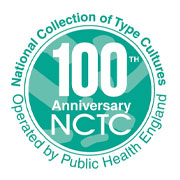
|
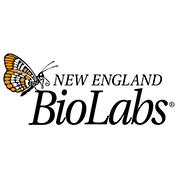
|
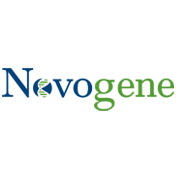
|
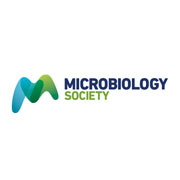
|
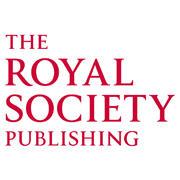
|
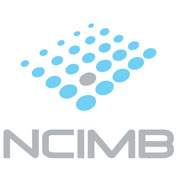
|
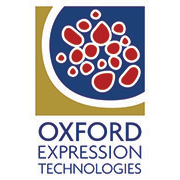
|
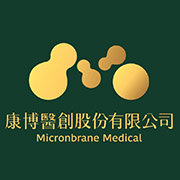
|
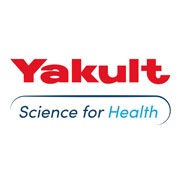
|

|
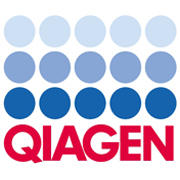
|
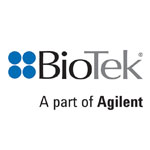
|
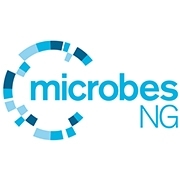
|
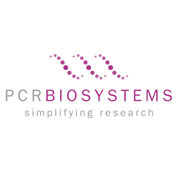
|

|
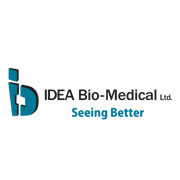
|
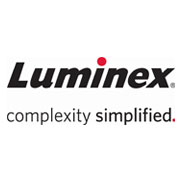
|
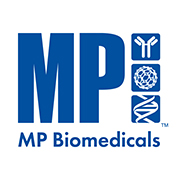
|

|
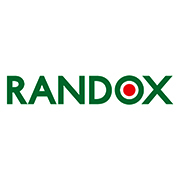
|
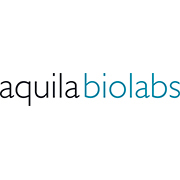
|
One of the significant challenges with wastewater monitoring is the lack of an optimized and standardized sample processing workflow from sample collection to RNA detection. The efficiency of viral concentration methods, sampling variability, viral genome stability and the sensitivity of the detection assay are some of the factors to consider while designing a testing strategy. Due to the highly heterogeneous nature and presence of inhibitors, one must tailor methods selected at each step to use wastewater and validate performance using appropriate controls.
The ability to detect a DNA or RNA sequence of interest has long been an enormously powerful tool for research, detection of infectious agents and diagnosis of patients. Methods to test for these sequences of interest are reliable and sensitive, but are traditionally limited to sophisticated laboratories with trained personnel, expensive equipment, and long processing times to get results from a sample. Recent years have seen a desire to expand this testing paradigm, with the COVID-19 pandemic in particular demanding a greater variety and number of testing approaches. Isothermal amplification methods like LAMP present an attractive alternative with a level of speed and simplicity that can enable sensitive on-demand tests at the point of care or even at home. These techniques and the tests that use them are providing broader access to reliable testing, and democratizing diagnostics for improving public health worldwide.
In this presentation, Novogene’s Senior Product Manager, Dr. Wei Li, will review the pros and cons of the two strategies, and what scientific questions you can answer by using each. You will come away with a better understanding of the two sequencing approaches and how to use them in your research.
The National Collection of Type Cultures (NCTC) was founded in 1920 in order to fulfil a recognised need for accumulating and disseminating information on bacterial pathogens. It is the longest-established collection of its kind anywhere in the world and today supplies over 6,000 type and reference strains - many of medical, scientific and veterinary importance - to academic, health, food and veterinary institutions worldwide. Recently, a collaboration between NCTC and the Wellcome Sanger Institute established the NCTC3000 project to long-read sequence and assemble the genomes of up to 3,000 NCTC strains. Here, we illustrate the utility of this new dataset via a case study, where the genomes of 133 Staphylococcus aureus strains accessioned over the last century are analysed for the presence of Staphylococcus enterotoxin genes. We both find new biological information on this key virulence gene family and show how genomic datasets can add value to an historic strain collection.